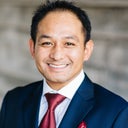Here are the major points of smoking Tobacco or Marijuana before or after surgery:1. There is nicotine in tobacco, but not in marijuana. However, most joints are rolled with marijuana and tobacco combination. Nicotine is a vasoconstrictor that decreases blood flow to the tissues. This is the major problems that can cause a very bad outcome in some surgeries. In a breast augmentation, there is not a lot of risk as there are not a lot of incisions which decrease blood flow to the tissues. In a breast lift or tummy tuck, on the other hand, there is much longer and more involved incisions. The decrease in blood flow to the tissues in combination with the decrease in blood flow from the nicotine can cause tissue to die. This can cause part of the breast or nipple, or in the case of a tummy tuck, part of the belly tissue to die, resulting in a very bad outcome. This is especially bad in breast reductions or face lifts. In a rhinoplasty the tip of the nose and the columella, the area between the tip and the lip, is at risk. Your skin and tissue can turn black and fall off if this happens. Marijuana without tobacco does not cause this problem, or marijuana in an edible fashion. Vaporizers do not decrease the amount of nicotine in tobacco, only decrease the smoke. Hookah also does not decrease nicotine.2. There is carbon monoxide in both tobacco smoke and marijuana smoke. Carbon monoxide decreases the oxygen carrying capacity of hemoglobin in the blood. This is different from the vasoconstrictor effect, but has the same result of having the risk of tissue death in conjunction with surgeries that decrease the blood flow to tissues such as breast lifts and tummy tucks, as opposed to an augmentation alone that does not decrease blood flow to as great of an extent. Again, edible forms of marijuana do not have smoke, and thus carbon monoxide poisoning.3. Coughing. Both tobacco and marijuana smoke disrupt the lining of the lungs and bronchi and can lead to coughing episodes. Coughing episodes can lead to internal bleeding after surgery that can lead to hematomas and complications, and again a bad outcome. Again, edible forms of marijuana does not have this effect.4. Anesthesia effects. Marijuana can have drug interactions with certain anesthetic drugs. Thus it is important to tell your anesthesiologist about your marijuana use.In conclusion, Smoking, whether it be tobacco or marijuana, is detrimental to your surgery outcome. Edible marijuana is much less so, but be honest about your use with your surgeon and anesthesiologist so that you can have the best outcome. In general, you should quite smoking many weeks, ideally 6 weeks before surgery, and not smoke for at least 2 weeks after surgery.Best wishes,Pablo Prichard, MD


















